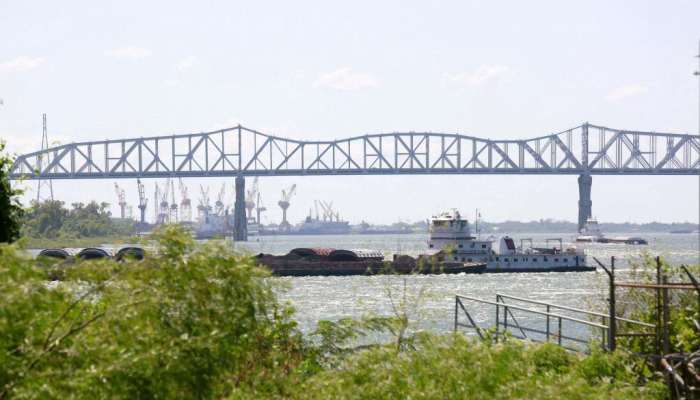
Houston: Salt water moving up the Mississippi River from the Gulf of Mexico is threatening drinking water supplies in and around New Orleans, the biggest city of US state Louisiana, triggering a big concern of potential lead contamination.
As of Friday afternoon, New Orleans' drinking water was safe, New Orleans Mayor LaToya Cantrell said in a news release.
"We have been and will remain in daily, close coordination with local, regional and state agencies to actively monitor the salt water wedge moving up the Mississippi River," said Cantrell. "The most important thing for residents at this time is to stay informed and remain calm."
The salt water intrusion has already tainted water systems in Plaquemines Parish and is now nearing various water intakes around the New Orleans metro area, according to the office of Louisiana Governor John Bel Edwards.
The salt water's leading edge is expected to reach St. Bernard on Oct. 19, Algiers on Oct. 22 and Gretna on Oct. 24, said the office.
The problem could make the water undrinkable until at least January, said Collin Arnold, New Orleans' homeland security chief, citing projections from the U.S. Army Corps of Engineers.
President Joe Biden on Wednesday approved an emergency declaration in Louisiana in a bid to coordinate federal disaster relief efforts to the salt water intrusion.
Salt water has been slowly flowing north for months due to drought in the Midwest which dropped water levels in the Mississippi River low enough to allow the Gulf of Mexico to creep in.
Salt water can corrode lead pipes and leach heavy metals from the pipes and pipe fittings into drinking water, making the drinking water unsafe and thus posing a health risk, experts say.
About 48 percent of the New Orleans water system was installed before 1940, making many pipes more than 80 years old, according to a report from the local news website NOLA. Lead was a common pipe material until the US banned it in 1986.
"We have no idea how many lead pipes remain in the city, but in my field research it was rare for me to find a home without a lead service line," said Adrienne Katner, a drinking water researcher with the Louisiana State University Health Sciences Center in New Orleans.
The levels of lead contamination could depend on salt concentrations in the water and how long the salt water courses through water systems.
"Any level of lead is harmful," Stephen Murphy, director of Tulane University's Disaster Management Program, told NOLA news website. Corroded pipes can continue to release lead for months or years after the source of the corrosion is neutralized.
"The health effects of drinking salt water have been found to be associated with cardiovascular diseases, diarrhea and abdominal pain," said the Louisiana Department of Health.
However, city officials said it's too early to predict the severity of the contamination as the authorities are seeking solutions to dilute the salt in water systems, including building a pipeline from further upriver and barging in fresh water.
"Any speculation about impacts is premature, but we are working diligently with top experts at Louisiana Dept. of Health and the Environmental Protection Agency to prepare to increase our frequency of lead testing and address impacts swiftly with a full range of resources," said a spokesperson for the New Orleans Sewerage & Water Board.
The agency said salinity levels are now monitored daily in the city and its neighboring communities downstream.
The intrusion of salt water upstream into the Mississippi River is a naturally occurring periodic condition, according to a post on the Army Corps of Engineers website.
The river's bottom profile is deeper than the Gulf of Mexico water surface level up to about 15 miles downstream of Natchez, Mississippi, said the post. During most months of a typical year, the river's volume of water flow is sufficient to prevent salt water from the gulf from intruding upstream. But when the river's flow falls below a certain level, salt water may begin to move up.
The rate of fresh water flowing down the Mississippi River has been low due to extended drought conditions in Louisiana and across the Mississippi River Valley, said the governor's office in a news release last week. Significant rainfall is needed farther north to increase the amount of fresh water flowing down the river and flush out the salt.